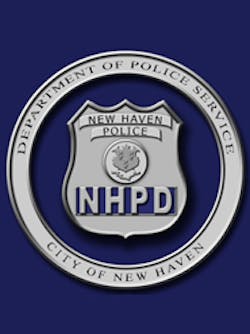CT Cops Say Reviving Overdose Victims Not Their Job
NEW HAVEN -- A task force is looking into supplying city police officers with the opiate overdose antidote Narcan, but the police and fire unions are not supporting the initiative.
“Having police officers provide Narcan is a change in our working conditions,” Police Union President Craig Miller said. “The change requires police to administer duties firefighters have performed for over 40 years and has been firefighters’ work.”
City Deputy Director of Emergency Management Rick Fontana said Mayor Toni Harp asked a task force of emergency, police, fire and health department officials to review options for Narcan administration by city police. The request came shortly after a string of overdoses in June left three people dead and put a dent in the city’s Narcan supply.
“Overdoses are a difficult issue. People are dying. I understand the mayor’s concern,” Fontana said. “We wanted to make sure to review all of the options and then we’ll present them to the mayor and police chief.”
The task force has come up with three options to date. The first is having all officers carry Narcan (naloxone) in holsters and be trained in its use. The second option is putting a Narcan kit in patrol cars and also training everyone on how to use it. The third option is to supply Narcan and to train officers in high risk areas of the city.
The Narcan would come at a cost. Kits provided by the state are $100 each.
“If you were to give it to every officer, it’s about $40,000,” Fontana said.
There are additional costs for holsters to carry the Narcan, which Fontana said will run about $25,000 based on some options the task force has looked seen. Putting the antidote in only the city’s 75 patrol cars would be less expensive than giving it to each officer individually.
“Whenever you take on an initiative that involves 400 law enforcement officers, there are some logistical issues that have to be worked out,” Fontana said. “Another issue is the collective bargaining between fire and police. Those are things that everyone is putting into the options.”
Fontana said there are many police departments that equip their officers with Narcan, especially in small towns where the police are the designated first responders for medical emergencies.
“In the smaller communities, it’s very different. We’re a big metropolitan police and fire department; we really operate much differently,” Fontana said.
The New Haven Fire Department is the official first responder for medical calls in the city.
There are 72 firefighters on duty every shift, 14 fire apparatus and two Narcan kits in each truck and an extra supply in the stations. The average response time for the fire department is three to four minutes.
Miller said that because police in New Haven are not first responders who perform medical calls and do not have the proper equipment, they should not perform the duty of administering Narcan.
Miller said that doing so would put police officers in an unsafe position. Fontana elaborated on Miller’s concerns and said that because someone who is given Narcan must be given oxygen afterwards, and police do not have the equipment to do so, the officer would have to wear a mask and perform “mask-to-mouth” resuscitation on the overdose victim. Miller said it would put officers “at risk of exposing their weapons.”
Fire Union President Frank Ricci said both the fire and police unions are standing together on this issue.
“New Haven firefighters provide the best possible emergency medical services in this city. This is clearly the fire department’s duty. Simply put, the fire (department) unequivocally gets there first,” Ricci said.
Other departments in the state are investigating similar options. Although Woodbridge police are the designated first responders for medical calls in the town, their officers currently do not carry Narcan. Woodbridge Police Chief Frank Cappiello said they are looking into it.
“We started having the conversation about it in the past few weeks,” Cappiello said. “The (overdose) epidemic is skyrocketing.”
Fontana said while there are some questions and concerns, giving Narcan to police is a priority for the Harp administration.
“You don’t realize the amount of people that might have a son or daughter that have an addiction,” Fontana said. “It’s an epidemic. It’s a national problem. We expect it to expand further.”
———
©2016 the New Haven Register (New Haven, Conn.)
Visit the New Haven Register (New Haven, Conn.) at www.nhregister.com
Distributed by Tribune Content Agency, LLC.
une Content Agency, LLC.
